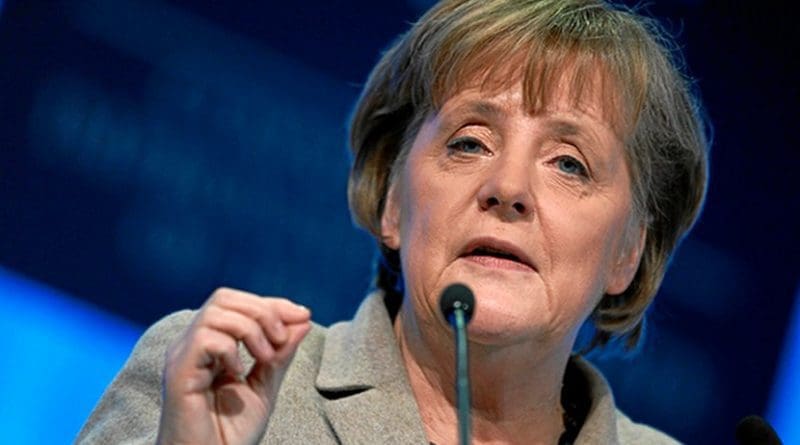Coronavirus Could Offer EU Chance For Much-Needed Reform – OpEd
By Arab News
By Dr. John C. Hulsman*
Given the panic enveloping the globe, let us logically think through the political risk ramifications of the coronavirus. The basic, Platonic question that first needs decisively answering is this: Is the coronavirus the political risk event of the 21st century so far, or is it just one of a series of lesser crises out there?
I think that answer must now be clear to even the dimmest of analysts. The global health crisis the coronavirus represents — along with its huge economic, geopolitical, and political ramifications — towers above any other single-issue event that has happened over the past 20 years, both in its obvious global scope, as well as the shock that closing huge components of the world’s economy represents. This is the equivalent of our generation’s global war. It is the big one.
Second, as was true with the last great global pandemic, the Spanish flu of 1918-1920, the coronavirus is likely to serve as an accelerant of trends that are already present. In the case of the present pandemic, the coronavirus amounts to the next chapter in the already established worldwide shift toward the delinkage of globalization itself. While free trade will (and must) continue, it will not be as “free” as before; more and more trade will be regional in orientation, as global supply chains dissolve in the face of tariffs and health panics. This will have the profoundest implications for the world.
Third, this once-in-a-generation political risk event upends the basic global geopolitical narrative. Think of the great powers (the US, China, and the EU) as players at the poker table. The game has a clearly defined set of rules and patterns and who is winning (China, above all, recently) and who is losing (the EU, relatively) has not radically changed for quite a while. The coronavirus upends the game, thrusting all the cards high into the air. In a basic sense, the player who picks up his cards — in the immediate aftermath of the global pandemic — and plays them best can fundamentally alter the trajectory of the game itself.
All the powers have basic strengths and weaknesses made clear by the crisis. China, where the virus originated and initially by far the hardest-hit power, is coming out of the crisis ahead of the rest; in fact, the West itself — and especially the US — has not begun to see the worst of things.
China comes out of things in better shape than most, having taken the hit and — using state control to marshal its disciplined public — managed to best this first wave of the pandemic. While 30 percent of Chinese businesses are still not open, and many others have been underutilized for much of a quarter now, Beijing can at least look forward to being able to get back to normal while the others struggle with the darkness of the plague. On the other hand, in the longer term, a delinkage of globalization hurts China — by far the world’s greatest exporting power — more than anyone else.
The US, while possessing both the most advanced and most dynamic economy in the world, also has a terrible political leadership that has been dreadfully slow to react. Also, the country’s rickety health care system has resulted in there being scandalously little overall testing for the virus — an avoidable lapse that will lead to more deaths than are necessary. The virus has yet to really strike America. When it does, these glaring deficiencies will be horribly clear to all. Following the pandemic, the US could well lose further geopolitical market share to the others.
Finally, there is the EU. As we have predicted over and over in this column, the continent-wide governance of Europe is not fit for purpose in our new era. The EU is an edifice made for sunshine, not for rain. The minute there is a real crisis, all talk of “solidarity” goes out the window, as the Germans hoard surgical masks from desperately pressed Italians. Nor have there been sufficient EU-wide monetary policies put in place to brace the virus-infested French, Spanish, and Italians.
But crises can also amount to opportunities. The frugal Germans — belatedly, under the perpetually sleepy Angela Merkel, at last aware of the danger to themselves — have remarkably pledged to open the spending spigots to the tune of €500 billion ($537 billion) to combat the virus. Berlin has pledged to do whatever it takes to safeguard its economy; it can now hardly fault other European countries from doing the same. This removes a great obstacle to EU-wide reform, if the great European powers could only compromise.
A Germany that grudgingly allows more continent-wide spending (at today’s subterranean interest rates); a France that settles for less than an EU super-state but does manage to move Europe toward at least confederation; and an Italy that gets to spend more but only on specifically targeted areas to stimulate future structural growth, is at last possible. It will take vision to achieve Europe’s dramatic turnaround, but at least — following the carnage of the coronavirus — the pieces to do so are on the table.
- Dr. John C. Hulsman is the president and managing partner of John C. Hulsman Enterprises, a prominent global political risk consulting firm. He is also senior columnist for City AM, the newspaper of the City of London. He can be contacted via www.chartwellspeakers.com.

